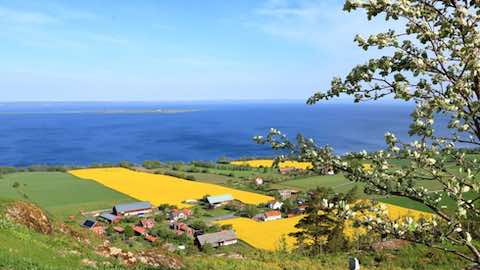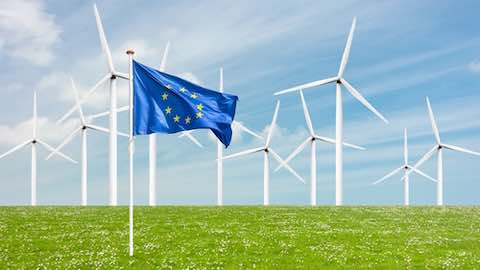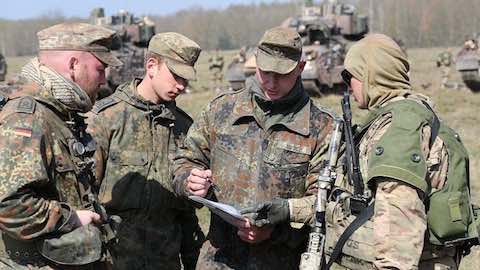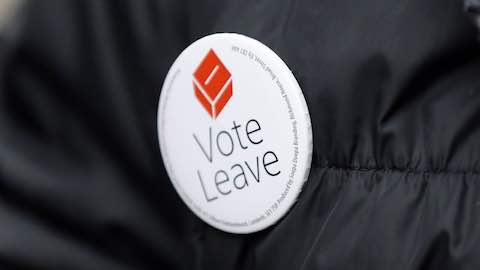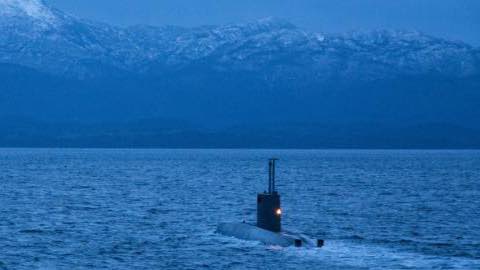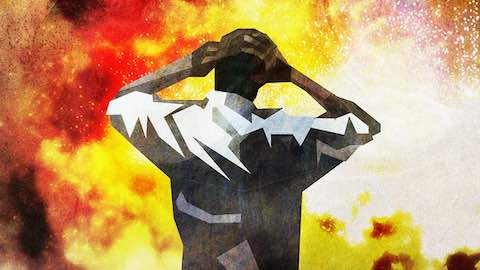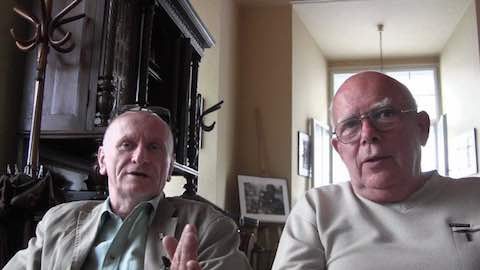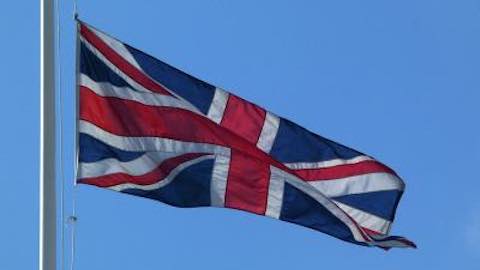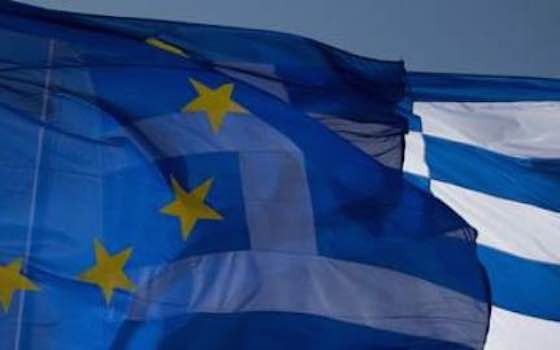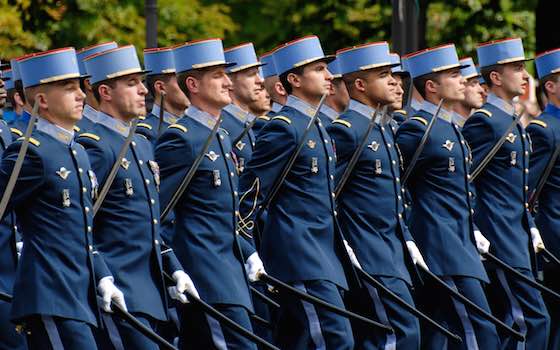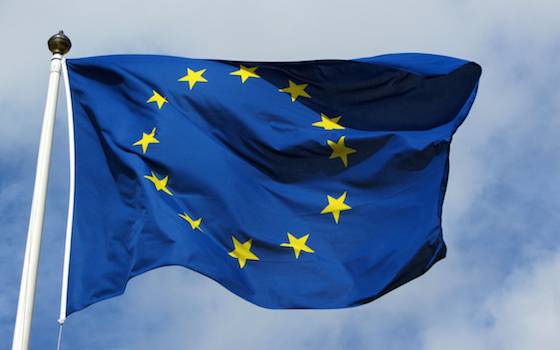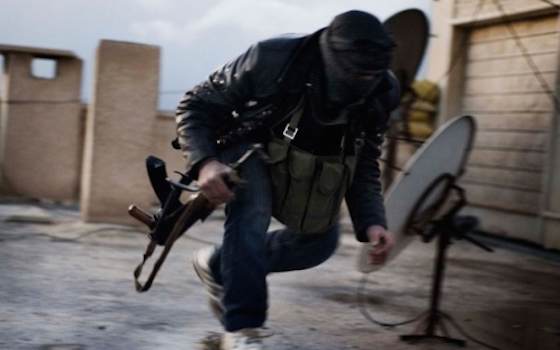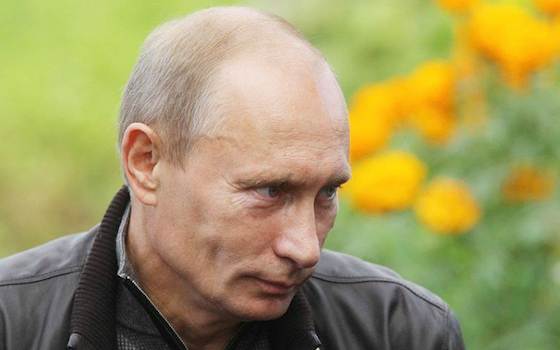- MENU
- HOME
- SEARCH
- WORLD
- MAIN
- AFRICA
- ASIA
- BALKANS
- EUROPE
- LATIN AMERICA
- MIDDLE EAST
- United Kingdom
- United States
- Argentina
- Australia
- Austria
- Benelux
- Brazil
- Canada
- China
- France
- Germany
- Greece
- Hungary
- India
- Indonesia
- Ireland
- Israel
- Italy
- Japan
- Korea
- Mexico
- New Zealand
- Pakistan
- Philippines
- Poland
- Russia
- South Africa
- Spain
- Taiwan
- Turkey
- USA
- BUSINESS
- WEALTH
- STOCKS
- TECH
- HEALTH
- LIFESTYLE
- ENTERTAINMENT
- SPORTS
- RSS
- iHaveNet.com: Europe
Countries
Argentina | Australia | Austria | Benelux | Brazil | Canada | China | France | Germany | Greece | Hungary | India | Indonesia | Ireland | Israel | Italy | Japan | Korea | Mexico | New Zealand | Pakistan | Philippines | Poland | Russia | South Africa | Spain | Taiwan | Turkey | United Kingdom | United States
- Religion & Russia-Ukraine Conflict
- Outstretched Hand for the Balkans
- How Trump & Brexit United Europe
- The Bright Side of Brexit Chaos
- Putin's Nuclear Boasting
- Italy's Election is Getting Ugly
- 'Democratic' Autocracies are a Threat
- Would Churchill Have Voted for Brexit?
- The Resilience of Spanish Democracy
- The Birthplace of Trumpism
- What Ireland Can Teach Europe
- Satisfaction Levels Around Europe
- Europe's Busiest Airports
- Where Support For Autocracy Strongest
- British Gender Gap Starts at Early Age
- Greece On Track For Surplus Target
- Greece: Will Austerity Demands Drop?
- Greek Debt Manageable
- Greece Bids Farewell to Mitsotakis
- Greek Islanders Rely on God
- Euro Zone Turns to Hedge Funds
- Europe's Biggest Test Yet
- Illusive Nature of Euroscepticism
- What Future for Europe's Security?
- Greeks March to Mark '73 Student Revolt
- The Cost of Conflict
- Europe's 'Solidarity Cities' Unite
- EU Fears Losing Truculent Renzi
- Europe's 'Solidarity Cities' Unite
- Nearly 1 in 6 European Adults Obese
- Germany & Italy: Forward & Back
- Greek Prime Minister Mitsotakis
- Is Macron the Anti-Trump?
- Russia: Expecting the Expected
- Greece & the Crisis of Meaning
- Poland: The Politics of National Memory
- Can Europe Sustain the Macron Moment?
- Britain's Brave New World After Brexit
- Europe's Crisis Starts at Home
- Putin's Biggest Arctic Military Push
- Putin's Rating High Despite Protests
- Who Feels EU Membership Has Paid Off?
- Tech Giants Lobbying in Europe
- The Rise of Young Asylum Seekers
- Russian Attitudes Towards Corruption
- Euro Zone Economy Steams Ahead
- Hollande Warns of American Populism
- Emmanuel Macron's Landslide Win
- Populism's Call
- Europe is No Longer Safe
- The Brexit Vote and Beyond
- Can Europe Resist the Right Tide?
- Scotland and Brexit
- Which EU Countries Deport The Most
- Young Europeans Living with Parents
- Belgian Brewing on Global Culture List
- France's Waste-Not Experiment
- EU Sleepwalking Toward Cliff
- Tsipras Sketches Out Path for Greece
- Spain's Turmoil & Europe's Crisis
- Ukraine's Coming Winter of Decision
- European Security in the Trump Era
- Cyber-Influence: It's Not Just Russia
- Cold War II
- The Rise and Fall of Europe
- EU Data Privacy Rules Leave US Behind
- Catalonia & the EU's Role
- The Fallacies of the Cyprus 'Problem'
- Germany: Return of the GroKo
- Catalonia's Tumultuous Referendum
- Italian Feeds Poor with Food Waste
- Brexit Effect On Women's Rights
- Importance of a Nation's Capital
- Lone Migrant Children Arrivals Double
- A Place Without Human Dignity
- Britain's Best LGBT Employer
- UK Politics: Corbyn on the Rise
- UK Election: Dis-May-Ed
- May's Gamble Backfires
- Instability, Quagmire, & Peace
- The Coming Legacy of Brexit
- EU Integration, Prosperity at Risk
- Erdogan Warns Europe
- EU Should Not Freeze Turkey
- Preventing German-Turkish Train Crash
- Germany Leads Europe In Hospital Beds
- Stop the Presses
- New Century, Old Rivalries
- Sadiq Khan & the End of Islamophobia
- Thinking Outside the European Box
- Belgian Awful
- Ireland's Easter Rebellion
- Threat Perceptions in Europe
- Why We Can't Blame Syrian Refugees
- Joined-Up in Crisis Response
- The Dayton Accords 20 Years On
- The Global Militarisation Index
- Too Much Tolerance for Too Long
- Russia & France Join Forces
- Momentum in the Fight Against ISIL
- Did Terrorist Pose as Refugee?
- What We Know About the Terrorists
- Egypt Plane Crash Was a 'Terrorist Act'
- Is the Refugee Crisis Really a Crisis?
- How Greece's Creditors Trounced Syriza
- A Cemetery of Life Vests
- What Really Caused the Crisis?
- Depending on the Dutch
- Europe's Challenges
- Spain Says 'No' to Austerity
- Spain's Game of Cat & Mouse
- Hybrid Warfare
- What to Expect After the Paris Attacks
- Timeline of 2015 Terror Attacks
- The French Political Resolve
- Crackdown in France & Germany
- Anonymous Declares War on ISIS
- What Anonymous' Cyber War On ISIS Means
- Belgium Remains on High Alert
- Belgian Suspected to be Mastermind
- Portugal's Democracy Crisis
- Portugal: Europe's Left Batting 1.000
- Poland's Tea Party Movement
- Socialists Rain on Spain
- Irish Shillelagh Austerity
- The Right's Reign In Spain
- Perspectives: NATO-Russia Relations
- Putin's Syrian Quagmire
- Politics & Illiberal Religion
- Everything You Need to Know
- Paris Aftermath: Special Report
- France Contemplates a Reckoning
- Talking to Children About the Paris Attacks
- Paris Attacks: A Timeline of Events
- Paris Attacks: 'Not Very Smart'
- Charlie Hebdo Responds To Paris Attacks
- Romania's Missed Opportunity
- 25 Years of German Unity
- Europe Gets up off the Mat
- Church & State in Poland
- Greece: Euro Zone Deal Won Time
- Fine Gael Considering Coalition
- How the Left Failed France's Muslims
- Syriza: The Greek Earthquake
- Paris Attack Will Not Be the Last
- Greece Rejects EU Austerity
- Can Central Bankers Save Europe?
- Europe New Laws to Combat Terrorism
-
Will Britain Leave the EU?
- Extremists & Terrorist Propaganda
- Hungary's Irregular Border Crossings
- Before Solidarity was the Church
- Public & Private in Poland
- Ukraine: Calls for Appeasement
- Kiev Bloodbath Remembered
- Migration, Islam & Security in Europe
- State of Human Rights in Poland
- Greeks Divided Over Syriza Win
- Syriza Party Seeks Out Right Wing
- Thousands Celebrate Syriza Victory
- France's Battle Against Radical Islam
- How to Handle Terrorist Attacks?
-
Spain Goes Wild
- Will Greece Leave the Eurozone?
- Whither Ukraine's Revolution?
- Determined to Thwart ISIL
- Greeks Prepare for Elections
- Scotland, Nationalism, and Freedom
- Will Greece Leave the Eurozone?
- Greeks 'Need To Suffer More'
- German Thrift & Austerity
- Reconciling Europe's Faultlines
- Can Ukraine Gnaw Its Way Out
- Europe Going the Way of Yugoslavia
- A Lesson in Deflation for Europe
- Spain Arrests Islamist Militants
- British Voters Deserve Tax Cuts
- End in Sight for the United Kingdom?
- Europe's Rising Religious Tensions
-
How Greek Politics Affect Economic Trends
- French Extremists Find Propaganda
- Church of England Ordains Woman Bishop
- Business Must Help Fight Terrorism
- Poland's Geographic Challenge
- Past Horrors Haunt a Polish Town
-
As one French commentator has wisely written: Ukraine needs two 'F's' -- a federal system of self-governing provinces, and 'Finlandization.' The last thing it needs is domination by either the New Russia or the partisans of a New American Century
-
Coverage, analysis, photo and video coverage of the 2014 FIFA World Cup from Brazil
-
Another tribute to conspicuous wealth comes in the annual "Rich List," a guide to the 1,000 richest in Britain, published in The Sunday Times Magazine. A fat feline sits proudly on the cover with the symbol of a British pound (in gold) around its neck
-
European Parliament elections are expected to bring about a new all-time record turnout in support for right-wing, anti-immigrant, and anti-EU fringe parties. In many European countries, extremist parties have been on the rise
-
The EU is under attack from all sides. To many on the Right, it seems to be an over-regulated bureaucracy that is undermining the bloc's competitiveness. To those on the Left, it's seen as a vehicle for imposing neoliberalism on an unwilling population
-
Stratfor's David Judson and Adriano Bosoni discuss the growing trend of Euroskepticism and the Continent's permanent balancing act between continental integration and national sovereignty
-
As I write, the next step in the Ukraine crisis is unknown. The new authorities in Kiev have sent forces to try to recover the official buildings taken over by pro-Russian forces in the East of Ukraine
-
An international disorder unmatched since the interwar 1930s has been created by the drama of Ukraine and the Russians. At least no ideological dictatorships are on the march, only confusion, incompetence, and intellectual and moral disorder
-
Four years after Greece entered the economic crisis, there are signs the reforms sought by the international lenders have begun to pay off. The costs have been high, but the Greek government has stuck to implementing the required steps
-
Past debates on the EU's possible emergence as a superpower have usually focused on its influence abroad. However, the EU's ability to project power and influence will also shape its internal future -- by either proving its utility to member states or not
-
After the tenuous deal struck aimed at de-escalating the Ukrainian crisis, Secretary of State John Kerry cautiously called it 'a good day's work.' Whether it will turn out to be more than that depends of course on Russia's willingness to follow through
-
In the aftermath of Crimea, attention is focused on the efficacy of the West's response in the form of economic and travel sanctions. More important for the longer term is what Moscow will learn from the Western response
-
In an apparent effort to fight bribery with even more overt state-sanctioned bribery, the battle for the hearts and minds of Ukraine has devolved into two suitors -- the West and Russia -- flashing their respective bank account statements. How obscene
-
During the Cold War, the Western allies kept relative peace by committing to intervene militarily against overt violations of national borders. In the current Ukraine crisis, Obama's acknowledgment that there is no "military solution" no doubt is an affront to hard-liners
-
In American domestic politics, messing with Social Security is known as "the third rail," referring to the power source for trains that is fatal to the touch. In foreign policy discussions, invoking the name of Adolf Hitler promises the same lethal result
-
Today's fight for Ukraine began with the Maidan uprising in November, but the struggle has its roots in an earlier period of political ferment -- 1991, when the Soviet Union collapsed and Ukraine became an independent state
-
After a quarter of a century of relative calm since the collapse of the Soviet Union, the Russians are coming again. The regime of President Vladimir Putin has swiftly pivoted to much more serious gamesmanship in neighboring Ukraine
-
Hopefully, leaders from both sides of this East-West conflict will calm down and start thinking of their own long-term interests -- which might be more similar to the other side's long-term interests than the leaders on both sides realize
-
Obama's response to Russian President Vladimir Putin's power move in Crimea can hardly be compared to Neville Chamberlain's fateful surrender to Adolf Hitler's blatant theft of the Sudetenland from Czechoslovakia in 1938
-
We must consider the future of Eurasia after the fall of the Soviet Union. The successor state to the Soviet Union, Russia, is emerging from this period with renewed self-confidence. Yet Russia is also in an untenable geopolitical position
-
Not only are many families being forced to abandon Athens and return to their roots, but a number of young people are choosing to start their working lives in the countryside, aware that Athens offers no hope of employment
-
The narrow majority vote in Switzerland against the 'massive immigration' foreseen as a consequence of accepting the European Union's commitment to free passage within the borders of 'Schengen Europe' has left the Brussels authorities in 'stupor'
-
There is no longer a British Empire and perhaps soon there will no longer be a Britain. The American effort to follow in Britain's steps and sustain Europe has failed. The postwar era has ended; but not the appetite for war and conquest
-
Things are moving far too fast in Kiev, Moscow and Crimea to write about events there. But the past isn't going anywhere. Though you wouldn't know that from the way the Obama administration talks about it
-
My beloved golden-domed Kiev with its cobbled streets and laid-back people will never be the same. We used to enjoy a slow, Mediterranean-style routine of cafes and gossip. Muscovites treated our city like a resort. These days the city centre is a war zone
-
News from Ukraine is moving so fast that if you don't look closely, you'll miss the untold story: a revolution for and by Ukrainian women
-
While most of the Western media describes the crisis in the Ukraine as a confrontation between authoritarianism and democracy, many of the shock troops who have manned barricades in Kiev and Lviv these past months have little interest in democracy
-
Ceding to protestors' demands, Ukrainian parliament members voted to impeach President Viktor Yanukovych and hold early elections. Various media outlets responded by breathlessly declaring the situation a 'revolution.' Except that it isn't at this point
-
The former Hellinikon International Airport site, a sprawling 600-hectare lot that closed in 2001, will soon be awarded to a private investor to develop it commercially, a reversal from original plans to develop it into Europe's biggest urban park
-
International lenders are asking Greece to increase the pace of privatizing state enterprises to meet fiscal targets and complete unfinished reforms
-
What did Washington expect to gain from a coup d'etat in Ukraine? It gained little from the 'Orange Revolution', that first put Viktor Yuschenko and Yulia Tymoshenko into power in independent Ukraine. Their power produced rivalry and corruption
-
Ukrainians are in uproar about how to force their distressed government to accept the majority will in Ukraine to join Western Europe, via association with the European Union. Their effort has produced rebellion and spilled into violence
-
Pussy Riot are now global celebrities. Since the amnesty of Nadya Tolokonnikova and Maria Alyokhina in December, their lives have been repackaged into simple cinematic narratives of heroic defiance to Putin's authoritarianism
-
Only when Russia has had an autocratic leader who set up a system where competing factions are balanced against each other has Russia enjoyed prosperity and stability. In other words, without a heavy-handed leader, Russia struggles to maintain stability
-
The challenge facing Romania is to create an economic dimension to its political and military relationship with the United States. A multidimensional relationship is inherently more self-sustaining than simply a political-military relationship
-
Not only was the intercept of European states' communications cause for outrage, but these countries' diplomatic premises in Washington, the United Nations and elsewhere being penetrated and bugged, as well as those of the European Union
-
European governments have been expressing faux outrage over American intelligence activities in the wake of the documents released by Edward Snowden indicating that the United States bugged European reps in Washington, D.C.
-
Germany's Chancellor Angela Merkel says that the answer to Europe Union's problems is more political integration. But, one is left asking what closer political union can bring to the EU without a full transfer of national sovereignties to European institutions
-
It is not simply the euro zone that is threatened by the dramatic economic discrepancies that now exist among its members. Now it is the European Union itself that is in danger, mainly but not entirely because of the economic crisis inherited from Wall Street abuses
-
When it comes to thinking up the brightest ideas in the world, the light bulb always seems to be blazing above an American head. The British, in contrast, rarely seem to make an impact. If they do come up with something, it tends to be the grand historical narrative
-
Debates on the strategic implications of Scottish independence have centred on the future of nuclear submarine bases, the divvying-up of British armed forces, and Scotland's ability to defend itself. But these are questions about the means rather than ends
-
The ultimate terms of the Cyprus bailout reveal the ongoing problems in the European Union, where differing political agendas have undermined the cohesion of the system as a whole. Policymakers have neglected to consider the lasting negative consequences
-
The European Union has voiced concern about low fertility as a major demographic challenge. If it stays at these low levels, the population quickly moves from growth to decline, which is already happening in Germany, despite immigration
-
While Europe as a whole is suffering from the economic crisis, the Muslim population has been hit particularly hard. This, in addition to the frequent discrimination against Muslims, leaves many Muslims feeling alienated, disenfranchised and resentful
-
Former French Budget Minister Jerome Cahuzac, who left his Socialist government post earlier this year amid allegations of a secret Swiss bank account, now faces a formal investigation for allegedly laundering the proceeds of tax evasion
-
Many Greeks are welcoming an announcement that further austerity measures to repay Greece's overwhelming debt will not be sought following three years of pay cuts, tax increases and slashed pensions. Prime Minister Antonis Samaras said better times are ahead
-
Emerging extremist organisations in the Balkans are operating alongside existing extremist groups and may try to change the political and legal framework to fit their agendas
-
After years of brutal austerity, collapsing economies, widespread unemployment, and shredding of the social safety net, Italians said 'basta!' Enough!
-
When the Peace Palace, home to the Permanent Court of Arbitration, opened in 1913, it was hoped it would herald a new era in international relations: one in which force of argument rather than force of arms settled international disputes
-
There is a paradox in the British attitude towards the railways. On the one hand, trains are the great repository of complaints. Indeed, no boss questions employees who site train delay as an excuse. On the other, people just keep flocking on to the lines
-
China has become the world's workshop and Europe has an insatiable appetite for its exports. Most now arrive on giant container ships. But as ports become clogged and delivery times critical, China is once again looking to the old land routes across Asia
-
The global financial crisis has slowly yielded to a global unemployment crisis. This unemployment crisis will give way to a political crisis. The crisis involves all three of the major pillars of the global system -- Europe, China and the United States
-
Switzerland just had a referendum in which it voted to give company and bank shareholders veto rights over the salaries, bonuses and overall compensation packages of senior executives and board directors
-
The United Kingdom could set an attractive precedent as it tries to disentangle itself from European Union affairs. There is a faction within the ruling Conservative Party that believes the UK should abandon the European Union entirely
-
European Union prosperity has now proved a phantom -- one conjured up by accounting gimmickry and borrowed German money. Neither the EU at large nor most individual European nations can sustain their present rate of redistributionist entitlements
-
From an economic perspective, Russia has been unable to avoid the effects of the global financial crisis. From a geopolitical perspective, the position is rather different. Since the crisis began, Russia has taken a number of steps to strengthen its positions in Europe
-
Wen Jiabao's term as Premier of China will, most commentators presume, come to an end over the next six months as he loses his party and government positions
-
The Nobel Committee recently awarded its prestigious top prize to 500 million people who have, for the last 65 years, made a conscious decision to live together in peace and harmony: the European Union
-
Great Britain, an EU member not part of the euro currency zone, has always kept one foot inside Europe in its dealings. But as the old dating adage goes, you don't dump the chump before you've secured another one
-
It would seem that we're now at the stage of global economic lunacy where the worldwide socialist slide is so far gone that the president of Russia is lecturing about the risks of socialism
-
Police officers in body armour surround dark-skinned men on a busy street in Athens. It is a scene that has been playing out across the city since the government crackdown on illegal migration
-
This crisis is existential for Europe. The design flaw of the euro is now manifest. It was a project entirely right in principle but the way it was done ...
-
The European Union's southern member states have turned the EU into one of the sicker regions of the world. In contrast, Denmark, Finland, Norway and Sweden have stood out by keeping much of their reputation and self-confidence intact
-
The Nordic countries have fared better than other parts of Europe during the financial crisis. What is this down to?
-
Catalonia is a region in northeastern Spain that for decades has had a substantial independence movement seeking to break away from the rest of Spain
-
Extremist attacks in Poland and elsewhere may follow Europe's worsening political and economic situation
-
Seventeen economically disparate nations bound their fortunes together in creating the euro zone, and it is exactly this that has thrown the European project into crisis
-
Respectable voices are now concluding that the eurozone may no longer be sustainable. In this emergent view, it would be better for Europe to split up now instead of later. But this view goes too far
-
Next year will mark the 40th anniversary of Britain joining the European community but the odds on it being there a decade from now are lengthening fast
-
We live within an economic system that is cruel and impersonal, divorced from gratitude, empathy, compassion, love and nurturance
-
There is the idea that political decisions are unpredictable, or less predictable than economic decisions. I would argue that political decisions are predictable
-
Nearly every step towards total union has revealed still more of the inherent factors of disunity in Europe and has dramatized how distant 'Europe' has become from the simple and lucid ambitions of its origins
-
The European Union is at risk of being destroyed by the euro. The credit crisis has created divisions in Europe which are undermining what was supposed to be mutual confidence and solidarity
-
For the second straight quarter, the UK economy declined, according to official data released. This raised questions on the austerity policies to lift the economy out of recession
-
Despite its economic situation, Spain hopes to reassure investors that they do not need to be bailed out like Greece. Spain's borrowing costs are at an all-time high
-
Greek officials and businesses are trying to lure back reluctant visitors, amid worries the 2012 tourist season is lost
-
Spain reasserted its lofty place in football hierarchy after hammering out a 4-0 victory over Italy in the finals of 2012 Euro Championship at Kiev Olympic Stadium
-
Conservative leader Antonis Samaras takes the helm of the new Greek government, but faces political -- and popular -- opposition
-
Driven by fear of being pushed out of the eurozone, Greeks back the same parties who created their economic crisis
-
Elections in Greece and France may be further dividing the Continent
-
The recent indecisive Greek elections could be summed up by two general themes: Greeks want to stay in, and expect help from, the eurozone
-
Spain's Prime Minister Mariano Rajoy announced that his government will implement 65 billion euros worth of spending cuts in a major effort to reach budget-deficit goals
-
Two renowned figures suggest that Greek Cyprus' presidency of the EU is an opportunity to correct nearly 40 years of history -- the reunification of Cyprus for the first time since the Turkish invasion of 1974
-
Throughout the Euro crisis, the Euro elite has suffered from the same inability to imagine failure that led to August 1914. Even days before the outbreak of war, it was thought impossible because the consequences would end the system
-
If the eurozone splinters, it will have been an avoidable disaster. The choice lies with Germany, which can save the monetary union if it allows for policies aimed at debt relief and growth, not just slashing deficits
-
Helmut Schmidt offered perhaps the clearest geopolitical perspective on the currency crisis from a leading German politician
-
Among the core economies of the eurozone, Germany is the most important member, but it will face strong political challenges in the coming months
-
In writing about German strategy, I am raising the possibility that the basic structure of Western Europe since World War II and of Europe as a whole since 1991 is coming to a close
-
Ireland's economic dependence on external partners means its fate is largely out of its hands
-
Despite short-term improvements, long-term problems will hamper Italy's efforts to escape its economic crisis
-
Portugal's social and political dynamics likely will allow it to stave off default
-
Spain's labor strike drew tens of thousands of people who marched through streets in major cities to protest the Spanish government's austerity program
-
Even before the financial sector and sovereign debt crisis began to destabilise Europe's banking system, European leaders were voicing fears that the Old World might be slipping towards global irrelevance
-
If there's one thing Europe doesn't need, it's more drag on economic growth. Yet that's just what it could be getting, with a fresh dose of snow and frigid weather
-
The Mediterranean stands as a dividing line between a prosperous Europe and a poor North Africa at a time when deeper economic ties could provide part of the solution to both crises
-
Increasingly, the European debt crisis is ceasing to be a Greek or Italian crisis. It is a crisis in the future role Germany will play in Europe
-
The old foes -- who are now EU allies -- are bickering over who is to blame for Greece's economic crisis
-
Greeks around the world are undertaking public relations initiatives to re-establish their homeland's reputation, as well as to boost the morale of its people and confidence in its economy
-
Once again, socialism has put a silver fork in itself. Standard & Poor's downgraded France's credit rating, giving the country the side-eye on its claims to have its debt under control
-
In Spain, two new satellite TV stations recently signed on. They won't be airing 'Judge Judy,' but instead are broadcasting Islamic theology and political propaganda
-
Nearly 10 years ago, Secretary of Defense Donald Rumsfeld provoked outrage by referring to 'Old Europe.' Yet the more things change in Europe, the more they stay the same
-
The great economic crisis has given birth to a smaller and tighter monetary union in Europe, under the influence of a Germany that is undergoing a certain estrangement from its European partners. This amounts to a possibly dangerous wager on what the European Union will ultimately become
-
Denis MacShane looks at some of the issues raised by Martyn Bond's book, The Council of Europe: structure, history and issues in European politics
-
The euro should now be recognized as an experiment that failed. The political goal of creating a harmonious Europe has also failed
-
German Chancellor Angela Merkel has pushed for stronger rules against overspending as the long-term answer to Europe's debt crisis and says the fixes for the eurozone's flaws must be written into changes in the basic EU treaty
-
Socialism and its accompanying economic devastation thrive on complexity and red tape. If something is so simple that anyone can figure it out, then a socialist is being deprived of a livelihood. That's the dragon Europe is now stuck having to slay
-
A new law will give Madrid more control over the budgets of Spain's autonomous regions
-
In Greece, opinion is that once again, as in 1917, 1940 and 1947, when, as they are convinced, they were ill-used by the great Western powers, they once again are victims of Western Europe, and especially of Germany
-
The eurozone crisis needs to be contained. If it isn't, a deep European recession could dash the slight upturn in the US economy
-
The dominant view has been that the Greek debt is the creation of a clientelistic political system that has historically resulted in a bloated public sector, unable to collect taxes. This is not a serious view
-
The international monetary system rests on just two currencies: the dollar and the euro. They are essential to global trade and finance. Were they not widely accepted, the global economy could not sustain current levels of international trade and investment.
-
Thanks to globalization, a crisis of governability has beset the Western world. The mismatch between the growing demand for good governance and its shrinking supply is one of the gravest challenges facing the West today
-
The United States' central challenge over the next several decades is to revitalize itself, while promoting a larger West and buttressing a complex balance in the East that can accommodate China's rising global status
-
With no end in sight for the two-year-old euro crisis, the question now is can the EU survive it while remaining united?
-
What made Europe a compelling political, economic, and social alternative wedged between Anglo-American free marketeers and Soviet nomenklatura is rapidly becoming a thing of the past
-
Leaders in BiH, Kosovo and Serbia must take steps to put their countries on the right track and prevent the region from sliding backwards, EU parliamentarian Doris Pack says
-
Comparing past sovereign restructurings, William R. Cline, a senior fellow at the Peterson Institute for International Economics, says that Uruguay's orderly default in 2003 offers a constructive example for Greece. The tentative Greek plan is similar to the path Uruguay
-
Only the United States seems to have an affinity for protecting tiny, vulnerable countries. Israelis, anti-communist Chinese, Kurds, Greeks and Armenians have a few things in common. They have relatively small populations, aggressive neighbors, few strong allies, many expatriates and refugees in the United States, and a tragic history of persecution and genocide
-
The current European Union is under threat no longer just from the debt contagion caused by weaker members, but also by plans of more prosperous members to form a breakaway group
-
Senior banker Lucas Papademos was named to be the new prime minister of an interim Greek unity government that seeks to agree upon a new European debt deal and thwart national bankruptcy for the financially ailing country
-
With Italy's debt ballooning to over $1.5 trillion, some leaders are now asking if the country has reached a point of being beyond rescue. The offer by Italian Prime Minister Silvio Berlusconi to resign from his post had failed to slow down the financial turmoil
-
The elections in France and Greece seem widely to have been taken, at least on the European and American left, as a solution to the great European economic crisis
-
The defeat of French President Nicolas Sarkozy in the French elections provides a clear lesson
-
The best France can hope for now is that the newly elected Francois Hollande takes a plunge into a pothole of pragmatism and douses any budding socialist ideas
-
Energy exploration is adding a new wrinkle to the Turkish-Greek rivalry over the island of Cyprus
-
Europe's seemingly intractable financial crisis is threatening to make itself felt across the Mediterranean in the economies of North Africa that can least afford another blow, economists say
-
This burgeoning threat has been framed as a uniquely European problem; one Europeans should ultimately solve. However, this perceived European problem now poses a threat to the economic stability of the entire world
-
The euro area has a real-time debt crisis already; the United States has a slow-fuse possible future debt crisis. The euro zone has unnecessarily provoked contagion from Greece to first Ireland and Portugal and now Italy and Spain
-
In both Europe and the United States, the current public debt woes are attributable to mistakes made by political leaders going back more than a decade
-
The markets are tumbling, the euro is crumbling, but I'll say it anyway: Europe is doing a better job handling its debt crisis
-
Europe faces a banking crisis it has not wanted to admit even exists
-
By showing us the possibility of democracy in revolution, the Mediterranean has ignited a revolution in democracy, one that is redefining the meaning of both terms
-
Eurozone exit rules would decrease the probability of a breakup of the Eurozone by enhancing market discipline, increasing the political bargaining power of EZ members vis-a-vis the profligate countries, enhancing internal discipline in the profligate countries, and reducing market uncertainty
-
For the Arab Spring it was Twitter; for the summer riots in London it was BlackBerry Messenger. The latest technology is helping to accelerate 'information cascades', where people make decisions based on what they see other people doing -- and getting away with
-
It was short-term good news in that it defused 'the bomb' -- the possible catastrophe vortex of failing banks and defaulting sovereigns. The bad news is that it will induce a recession. Banks will create a credit crunch in trying to meet capital adequacy ratios, and the new austerity will create a fiscal contraction
-
Each age becomes mesmerized by its own technological revolutions, so I am going to focus upon something rather different: indicators of changes which suggest that we are approaching, or may even have crossed, certain historical watersheds in the hard worlds of economics and politics
-
If you want the real reason for concern in the United States about what's happening in Europe, follow the money. A Greek (or Irish or Spanish or Italian or Portuguese) default would have roughly the same effect on our financial system as the implosion of Lehman Brothers in 2008. That is, financial chaos
-
A new survey shows that a majority of Europeans want the United States to continue exerting 'strong leadership in world affairs.' One wonders why Europe holds so much faith in America right now when Americans, trapped in a deep national malaise, have so little faith in themselves
-
Time is running out for EU leaders to put an end to the Eurozone crisis. This column explains how leaders could find a definitive solution to Greece insolvency, isolate solvent countries from possible Greek contagion, improve EU governance by creating a true European parliament, and refocus on a pro-growth policy mix
-
After a shaky start to the third quarter, the economy has found firmer footing, avoiding the double-dip recession that seemed imminent this summer. But don't celebrate just yet -- economists still expect a long, hard slog to a sustained economic recovery
-
'Birds of a feather flock together,' the old saying goes. So, too, do investors. Increasingly, talk is of a 'double-dip recession', 'Euro zone collapse' and the United States and Europe 'turning into Japan' -- that is, experiencing years of economic stagnation
-
The European Union is presently a source of great instability that leaders have yet to tackle. This column argues the current policy response is misguided. The adjustment programmes are bound to fail to achieve sustainable budget deficits, and may result in an unprecedented destruction of economic activity
-
The crisis won't be over until the underlying flaw of the euro is fixed -- namely the separation of monetary and fiscal policy. German public opinion has to realise that the euro was built on imperfect foundations and that these imperfections must be corrected. Meanwhile, the Italian president of the ECB will need all his technical and political expertise to keep the Eurozone together
-
European Union leaders have brokered a deal to reduce Greece's debt and hopefully stem the continent's lingering debt crisis. The deal is a major move forward, but it is still only one step in restoring stability on a continent beset by economic woes
-
Conventional wisdom has it that the eurozone cannot have a monetary union without also having a fiscal union. Euro-enthusiasts see the single currency as the first steppingstone toward a broader economic union, which is their dream. Euroskeptics do, too, but they see that endgame as hell -- and would prefer the single currency to be dismantled
-
European Court of Justice Advocate General Juliane Kokott ruled that the European Union proposed cap on airlines, which applies even to North American carriers, is legal
-
Vladimir Putin's Russia is a disaster of a declining population, corruption, authoritarianism and a warped economy. Why, then, would Putin want to ruin additional territory in Crimea and Ukraine the way that he has wrecked most of Russia?
-
Vladimir Putin has convinced many Russians that the interim government in Ukraine is fascist. And while there were some neo-Nazi goons and ultranationalists among the coalition resisting Moscow, it's simply a transparent lie that the current government is fascist
-
If you go on a Ukrainian geopolitical bender in front of a former KGB chief like Vladimir Putin without having a firm grasp of the opposition's mind-set, you risk launching yourself into a wall like some kind of drunken frat bro on a Slip 'n Slide
-
In all, it doesn't seem quite the time for either side to turn this virtual war in Ukraine into a real one. One hopes that the advisers of both Presidents Obama and Putin have grasped that. But probably one group or the other has not
-
The outcome of the French municipal elections contributed to the general European unease about the future of the European Union. In May EU Parliament elections will take place in the troubled circumstances of economic crisis everywhere but Germany
-
Russia and the West are both warning of the risk of escalation to a civil war in Ukraine between pro-Russian and pro-Western factions. Except 'Cold War Reloaded' is different this time -- and the differences are worth keeping in mind as events unfold
-
President Obama is right. He told Major Garrett that 'Mr. Putin's decisions aren't just bad for Ukraine. Over the long term, they're going to be bad for Russia.' But here's the thing: Putin disagrees. And on the matter of Ukraine, Putin is immune to persuasion
-
The long shadow cast by France on its former colonies in North Africa is the subject of "The French Intifada." The book examines France's engagement with Algeria, Tunisia and Morocco, a story of 200 years of invasions and immigration across the Mediterranean
-
Will everyone please stop talking about a new Cold War? However badly things work out between Russia and the West, a new Cold War isn't in the cards because Russia today isn't the Soviet Union. Sure, there are similarities, but ...
-
The report that protesters have declared two eastern Ukraine cities to be independent republics questions President Obama's assurance that there is no "military solution" to the crisis that began with Russian President Vladmir Putin's land grab of Crimea
-
Here again in the Ukrainian affair we see the Manichean habits of mind of the Cold War, still the most powerful precedent in the last 50 years of American and Western political history and policy studies
-
After Vladimir Putin's speech in the Kremlin justifying and welcoming Russian annexation of Crimea, the western press now asks what next will Putin do? How far will he go? That question was answered by Vladimir Putin himself in his address
-
The annual inundations that covered St Mark's Square and threatened La Serenissima with watery oblivion will soon be a thing of the past. The vast barrage holding back the waters of the Adriatic is almost complete. Venice is no longer in peril
-
Unrest in Bosnia is a sign that people are losing patience with problems that have remained unresolved since the signing of the Dayton Agreement at the end of the civil war in 1995
-
Under its incoming government, Serbia will continue on the path of European integration, but will have to face tough reforms to get there, said Aleksandar Vucic, who is slated to become prime minister
-
Turkish-Armenians are welcoming Prime Minister Recep Tayyip Erdogan's offer of condolences for the mass killings of Armenians that began 99 years ago during the Ottoman era. But opinions are mixed as to whether Erdogan's words will lead toward reconciliation
-
Spain's unemployment rate climbed to nearly 26 percent in the first quarter of 2014 as millions searched in vain for a job in a sluggish recovery from recession
-
The most disappointing thing about the news that French President Francois Hollande allegedly has been rendezvousing with an actress is that it's a testament to how pathetic some segments of French society are allowing public discourse to become
-
The Hollande-Trierweiler passage in the rich history of French scandals has ended badly for both, contributing to morbid forces of disunion at work in contemporary French society
-
The Cathedral of St. Michael the Archangel sits on a hill overlooking the Black Sea. The Russian Orthodox house of worship is the oldest in the city, commissioned by a Russian noble in the late 1800s
-
The years from 1912 to 1922 witnessed a series of momentous events in Ireland that changed the course of Irish history, and led to the foundation of the Irish state
-
All is not pacific in peaceful Europe. If you look at Europe's borders, it's hard to conclude that Europe much cares about the lives of people who don't belong to its exclusive club
-
When Communism collapsed in 1989 in Europe, many industries collapsed with it. But one sector grew: the media. Where there had once been a state monopoly, now there was pluralism. There was suddenly an explosion of reporting, commentary, TV debates
-
Volen Siderov is the leader of Ataka, perhaps the most controversial political party in Bulgaria. Ataka came to prominence in 2005. The party's platform mixes a left-wing critique of globalization with a frankly nationalist approach to minority policy
-
Poor Bulgaria. The Russians won't be back, but once again the Germans are headed her way -- this time armed with nothing more than a change of currency and the policies of austerity that go along with it. The devastation those will inflict, however, is likely to be considerable
-
The disintegration of Yugoslavia was a triumph of nationalist passions over political interests. If the latter had prevailed, the process would at least have proceeded peacefully. Some of those passions still remain, but the worst excesses have subsided
-
Marko Hren has spent a lot of time thinking about the 'what if' and believes that peace activists might have been able to prevent the slaughter that spread through the former Yugoslavian region in the 1990s
-
Since the start of the Global War on Terror, the military has been shifting its European center of gravity from Germany. In the process, the Pentagon has turned the Italian peninsula into a launching pad for future wars in Africa, the Middle East, and beyond
-
Some arresting images of the healing power of culture have emerged this year from a small city in Northern Ireland. Derry-Londonderry -- the residents argue over what to call it -- is a location where the Troubles began, a conflict that lasted a quarter of a century
-
Before we see another Mediterranean renaissance, constitutional government would have to sweep the Muslim world. The bureaucracy of the European Union would have to reform or disappear. Unfortunately, the Mediterranean is reverting to its stagnant 18th-century past
-
Poland is a thriving, vibrant democracy that, like Germany, managed to escape most of the devastating economic repercussions of the European debt crisis. But it's still struggling, not so successfully, to cope with its dark past
-
There is a silent war going on in Britain, between the Baby Boomers and the Millennials. The generation born after 1981 is trying to deal with a simmering resentment towards their parents, because of the things we will not inherit
-
If you read the news about Iceland you must understand that my country tends to be a projection of journalists' wishes. Reporters talk about the place that threw out the government, crowd-sourced a new constitution and made a brand new economic system
-
When the proposal was initially made for a common European currency, it seemed to be a good idea. Although inexpert in economics, it struck me as an effect of a false analogy with the United States that was common in Europe at that time
-
Margaret Thatcher never cared much for feminists and other progressive equal-rights movements. Yet she deserves to be honored by those of us who do, whether we like the result of her politics or not
-
There is a story about Margaret Thatcher, which is probably apocryphal, but speaks volumes about the strength of Great Britain's first female prime minister, who died at age 87
-
What makes this crisis different from the previous European bank bailouts are the conditions the European Union has set. Due to circumstances unique to Cyprus, the European Union, led by Germany, has taken a harder line with the country
-
The European Union's bailout plan for Cyprus has nothing to do with socialism but rather with much greater stakes. This is the EU attempting to outmaneuver an uncharacteristically flat-footed Vladimir Putin and Russia in a key battleground
-
Socialist French President Francois Hollande is in the pilot's seat in the world's latest military incursion. We're not used to seeing the French lead the way into battle, but it's becoming increasingly frequent
-
With unemployment in Greece at 27 percent, it is not surprising to see both radical right- and left-wing groups gaining support from those who have become disaffected by the crises. The disenchanted are joining radical parties espousing a wide variety of ideologies
-
Along with the divide between rich and poor in Europe, another has opened between the mobile and the stationary. This tension between the mobile and the stationary can be creative and not just contentious
-
This year, Europe needs to confront the political and social consequences of its economic crisis or face disintegration
-
A borderland is a region where history is constant: Everything is in flux. Turkey, Romania, Moldova, Ukraine and Poland occupy the borderland between Islam, Catholicism and Orthodox Christianity
-
Dean Acheson's remark that 'Britain has lost an empire and not yet found a role' was made fifty years ago, in 1962. Ever since, it has been held up as a uniquely pithy summary of the Great British foreign policy dilemma
-
Alex Salmond has confidently asserted that, if Scotland becomes independent, it will automatically remain a member of the European Union. This will be a central issue in the Scottish independence debate
-
Scottish nationalism passed through a romantic period in the Eighties and Nineties, which its leadership enjoyed but now wishes forgotten
-
The euro crisis is now threatening to turn the European Union into something fundamentally different. The member countries are divided into two classes -- creditors and debtors -- with the creditors in charge
-
In place of the drift that we see in Great Britain's relationship with the European Union, British politicians should start to think and act strategically
-
France has a double crisis. Its ruling political party, Francois Hollande's Socialist, is in a state of catatonia, usually defined as a condition of incoherence with alternate periods of stupor and activity
-
Like ghosts from the past, we see political violence, xenophobia, migrants being scapegoated and extreme nationalism creeping into our public debates -- even into our parliaments. This is a Europe diverging from its founding principles
-
If the euro crisis is not solved, German reunification may ultimately lead to European disintegration. The connection may seem far-fetched. Reunification was a long time ago
-
Germany and Europe share a common destiny, a destiny requiring Germany to assume a real leadership. Germany cannot disengage from Europe
-
There is a sense of frustration and impotence in watching the eurozone crisis unfold. The crisis could be dealt in a swift and credible way if leaders were capable of acting with vision and a sense of purpose
-
History is not an alibi, but neither is ignorance or indifference to history, from which Germany has richly profited since 1948. Greece was less fortunate
-
While the Nordic welfare model has demonstrated its strength as a shield against the global financial crisis there were also indications that the model was in urgent need of adjustment
-
Sweden projects an unrealistic image to the world. It is a small country with a thriving cultural export industry that sells whatever the outside world will pay for, which is mostly escapism. Economists call this creativity
-
Global governance has yet to prove its relevance to any civilization except that of the post-Enlightenment West, and one can question its relevance there. Political identity remains bound to national history -- the fundamental underpinning of sovereignty
-
The crisis Turkey has gone through was similar to what the EU is experiencing now. Banks went bankrupt. People's savings disappeared. Companies closed down. The Turkish economy shrank drastically. That crisis was a very important lesson
-
The Spanish bailout is yet another witches brew of cutbacks, layoffs, and austerity
-
The question of who will be allowed to take on debt, and under what conditions, will determine Europe's future
-
Oscar Reyes examines the financial crisis in Spain and discusses how a 100 billion Euro bank bailout will prolong austerity and increase Madrid's debt dependency
-
With Germany enjoying historic lows in unemployment, why is she resisting calls to open her purse strings to help the eurozone's floundering members? It is worth examining why Germans see things differently
-
Other countries have problems, but Greece's are an encyclopedia of bad behavior
-
Antonis Samaras gets his technocrat-laden cabinet working on the Greek economic crisis while he handles the politics
-
One of many things left out of the film 'The Iron Lady' was Prime Minister Margaret Thatcher's warnings on the effects a single currency would have on the economies of European nations
-
To mend broken Britain we need to rediscover the Victorian trick of spreading wealth
-
It's time Europe stopped viewing immigrants as a threat to society
-
Voters in France and Greece proved that they're willing to cycle through governments over and over until someone fixes their predicament. They want Santa Claus, as if they were 5 years old again
-
You can learn a lot about Europe's current economic crises by just ignoring the sophisticated barrage of news analysis and instead watching, listening, and talking to people
-
The Balkans are historically apart from Europe for two reasons. This has everything to do with the present crisis of Greece and the future of Greece's membership in -- or perhaps its departure from -- the European Union and its euro zone
-
A spike in suicides is blamed on the economic crisis that could also bring down the country
-
With an 18 billion-euro bailout, Greek banks are now staying afloat. But losses and political instability could easily sink the ship
-
It's no accident that Greece is the most economically troubled country in the EU. The fact that it is located at Europe's southeastern back door also has something to do with it. For Greece's economic and political development bear marks of a legacy not wholly in the modern West
-
Economists continue inveighing against austerity strategies. But none of them seem capable of explaining in plain, simple language why imposing austerity now is utterly foolhardy -- in fact, just plain stupid
-
Whatever one thought of the Libya intervention, the details make for a bad advertisement about NATO. As one U.S. Air Force planner told me, 'It was like Snow White and the 27 dwarfs'
-
Turkey provides an interesting case study of a minor country becoming a great power
-
The exploitation of the Cyprus' fuel resources may increase chances for rapprochement -- or undermine them
-
Socialist Francois Hollande edged ahead of incumbent Nicolas Sarkozy in a runoff election Sunday to claim the French presidency
-
Decisions by Europe and America in the past month have pushed away Canada and its oil overtures under the guise of environmentalism -- which is turning out to be the new protectionism. And for what? So America and Europe can explore more 'green-friendly' petroleum deals with unstable Middle Eastern and African regimes?
-
The severe economic upheaval in Europe has not been matched by a political resurgence of the radical right. Why is this and could it still happen?
-
Everyone is wondering about the next disaster to befall Europe. Italy is one focus; Spain is also a possibility. But these crises are already under way. Instead, the next crisis will be political, not in the sense of what conventional politician is going to become prime minister, but in the deeper sense of whether Europe's political elite can retain power
-
All over Europe, the gospel is that tight-fisted Germans are at the root of the European Union meltdown: They worked too hard, saved too much, bought too little and borrowed not at all
-
New political leaders do not invent new national strategies. Rather, they adapt enduring national strategies to the moment. And for France, the underlying issue remains constant: France's struggle for a dominant role in Europe at a time of German ascendance
-
Putin's return to the presidency was not unexpected. But it comes as an anti-incumbent trend is developing in Europe. In response to these changes, Putin will have to adjust Russia's approach in Europe
-
Great Britain has spent the last 20 years defining its place not in the world in general but between continental Europe and the United States in particular
-
Over the past two years, the eurozone members have done a remarkable job managing the short-term symptoms of the crisis, although the costs have been great. Yet the long-term challenge remains
-
Enraged Greek voters delivered a stinging rebuke to the two ruling parties that have dominated politics for four decades
-
Are the French getting their Tea Party on? That's what an outsider looking at the country's first-round presidential voting results might have been led to believe
-
It's a strategy sometimes seen in politics and in the case of the upcoming French elections, it may well be the winning strategy that determines the country's next president
-
Government bureaucracies do not deal well with ambiguity, and terrorists tend to be very ambiguous
-
Although overpopulation plagues much of the developing world, many developed societies are now suffering from the opposite problem: birthrates so low that each generation is smaller than the previous one
-
Thirty-one years ago Francis Mitterrand became the only left-wing president of France's Fifth Republic, and set off on the path of Socialism in one country, with dramatic consequences. The parallels are evident
-
What had seemed a long, tranquil current of political success that was conveying Francois Hollande to the French presidency has run into turbulence
-
In France, an Islamic terrorist has likely hijacked the agenda for the remainder of the French presidential race
-
Spain is at high risk economically and politically due to private debt, unemployment and increasing social tensions
-
Greece's economy has suffered from both the financial crisis and austerity measures meant to resolve the crisis
-
Europe's new fiscal compact treaty attempts to force regional reform without challenging sovereignty
-
French President Nicolas Sarkozy was elected by promising to modernize France's societal infrastructure and bring it more into line with America's. But then something got in the way: France
-
Political leaders stick to their scripts amid anger over austerity, uncertainty and the rising right-wing groups
-
For Russia, the recreation of a union is a strategic geopolitical necessity
-
A recession in the world's third-largest economy (Europe) combined with the current slowdown in the world's second-largest (China), spells trouble for the world's largest -- the United States
-
One of the most original thinkers on global strategy and technology discusses the future of the nation state, the focus of British foreign policy and how good can emerge from crisis
-
Al-Qaeda has warned Britain against extraditing Islamic radical Abu Qatada to Jordan where he has been convicted in absentia for plotting terrorist attacks in 1998
-
The market economy model invented and practiced by the West is no longer working. China is the dominant country in the eastern camp in such discussions. So what has caused such anxiety in the West?
-
China is making it way through the Balkans, amidst the economic crisis in Europe.
-
For all the veneer of the 21st century, the world still looks a lot like it did during the last hundred years and well before that
-
In France's presidential election the incumbent is running far behind his challenger in a contest that has more to do with personal character than issue
-
The financial crisis, the subsequent economic crisis and the crisis in the Eurozone can be seen as both a confirmation of the decline of socialist and social democratic parties as well as an opportunity for them to return to their roots
-
Indians do not have much understanding of European crises. If European woes are the reward for fiscal improvidence, Indian governments should have collapsed long ago
-
While Greece is at the epicenter of the troubles right now, the economic effects of the European Union crisis could be profound and global
-
In Greek mythology, the prophetess Cassandra was doomed both to tell the truth and to be ignored. Our modern version is a bankrupt Greece that we seem to discount
-
It could be the make-or-break moment for the embattled eurozone. Europe could either continue on the path of ever-greater integration - or return to being a regional group of rival states.
-
The discovery of large quantities of natural gas offshore Cyprus could give a push for ending the decades-long dispute dividing the island. But it could also end up ratcheting up tensions with Turkey
-
Italian Prime Minister Mario Monti announced his new government has plans to get Italy out of its recession while calling on other nations to mount a 'united response' to the eurozone debt crisis
-
At the heart of this particular crisis is the unpleasant fact that the common European currency project is, in its present form, simply not working
-
The head of the Bank of England issued a strongly worded warning to United Kingdom banks to get their financial houses in order to shield themselves from repercussions from the eurozone credit crisis
-
The financial crisis had its greatest impact in Europe, where it is triggering a generational shift. Since 1991, the idea of an integrated Europe has been a driving force of the global economy. Europe also has been presented as an implicit alternative to the United States as the global center of gravity
-
We may be looking at the possibility of a worldwide financial meltdown
-
EU leaders announced a new plan to contain the debt crisis in the euro area, after private banks and investors agreed to write off 50% of Greek debt from their books
-
Iceland's economic meltdown has led to a change in its constitution. This can be a lesson for other countries
-
Repressive regimes of the Middle East and North Africa had all the equipment they needed to quash Arab Spring protests, thanks to arms exporters
-
Peter Zeihan discusses the collapse of the Franco-Belgian bank Dexia and examines its effects on the European debt crisis
-
Slovakia rejected the proposed expansion of the European Financial Stability Facility. The measure was defeated by 21 votes after eight hours of debate by Slovakian parliament members
-
The plans all are financial solutions to a particular set of financial problems. But regardless of whether they are realistic in addressing the financial problem, the question of whether the financial issue really addresses the fundamental dilemma of Europe -- which is political and geopolitical -- remains
-
As Greece teeters on the brink of bankruptcy, the simmering resentment by workers, pensioners, the poor and youth for carrying the weight of the country's recovery seems to be boiling over
-
This column outlines a 'win-win' strategy for restructuring Greek debt that it argues would minimise the impact of a default and buy Greece and the rest of Europe some precious time
-
However kindly you look at it, the United Kingdom's economy is broken and so are significant parts of our society. How worried should we be? Just over twenty years after that infamous 'end of history' and triumph of western capitalism moment, have we now reached the nemesis point?
-
The Bundestag, Germany's Parliament, agreed to increase the country's guarantees on European Union loans to $284 billion from $167 billion
-
Peter Zeihan examines the obstacles to Greek prosperity and the challenges in ejecting Greece from the eurozone. Find out why Greece isn't salvageable, and why Europeans need at least 2 trillion euro to kick it out of the eurozone without triggering financial catastrophe
-
France, like all of Europe, is caught in an economic tsunami, and France is teetering at the edge of the precipice. Every week, it seems, presidents and prime ministers hold urgent meetings searching for a solution, culminating with the G-20 convocation recently. Still, the problem grows only worse
-
For most people, the knee-jerk reaction to an event on the other side of the world is, 'Why should I give a toss what happens in France?' While such foreign-policy prowess might be a hit at the local pub, would it really be smart to ignore an election that will impact everything in your life for which you pay or require borrowed money? Bear with me as I explain
-
Degrees in hand but no jobs and few prospects, many of Greece's young say they'll reluctantly abandon their near-bankrupt country and look for work and a new life in other countries. Others are just resigned
-
According to the IMF, Iceland has graduated from its Fund-supported programme with unqualified success. This column begs to differ
-
The falling standard of living, coupled with the economic slowdown and government reduction of tax breaks and social benefits, will lead to 3 million children in the United Kingdom living in poverty by 2013, the Institute for Fiscal Studies forecast
-
NATO, Russia and Missile Defense mark a triangle which contains political promises but also the danger of failure and friction
-
Welcome, world, to 'Cold War Reloaded: The Arctic Frontier.' Time to pull the pin out of the top of that dusty globe you have on your desk and have a look at the battle line of the future -- rife with oil and high-value raw minerals
-
Once the preserve of fishing boats and yachts, in the space of just a few weeks the serene waters of the Eastern Mediterranean have become a field of contention. As Greek Cyprus begins exploiting its potentially vast gas and oil reserves, Turkey asserts its growing role as a regional power, and a worried Israel is pushing back
-
Just the other day, Mr. Geithner was solemnly lecturing European policymakers on the dangers of not getting their financial house in order. That's right: The American secretary of the Treasury was telling other governments to beware of out-of-control spending
-
Europe might seem too treacherous for investors just now. The region's broader stock market is down more than 20 percent so far this year. But some asset allocation advisers and fund managers believe there is a place for European exposure in a diverse portfolio that can tolerate at least some level of risk
-
The European Commission has recommended Serbia to win EU candidate status, assuring it to grant EU entry to the Balkan state once it makes necessary progress in its relations with Kosovo, which has declared itself as an independent state
-
The single European currency is the first of its kind, something that many argue is the root cause of its troubles. The chief lesson, however, from the history of the next best thing, federal states with common currencies, is clear : no bailouts
© iHaveNet.com
